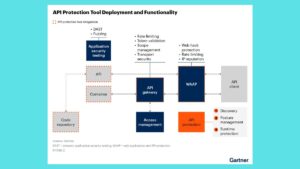CHROs: Here Are 5 Opportunities to Lead the Future of Work

The role of the Chief Human Resources Officer (CHRO) is evolving rapidly in today’s dynamic business environment. As organizations navigate changes in technology, employee expectations, and market demands, CHROs are uniquely positioned to lead the charge toward a more innovative and resilient future of work. Here are five key opportunities for CHROs to embrace to drive organizational success and foster a thriving workplace culture.
1. Championing Employee Well-Being
The COVID-19 pandemic has underscored the importance of employee well-being. As CHROs, prioritizing mental, emotional, and physical health in the workplace is essential. This can be achieved through:
- Wellness Programs: Implement comprehensive wellness initiatives that include mental health resources, fitness programs, and stress management workshops.
- Flexible Work Arrangements: Offer flexible work options, such as remote work or hybrid models, to accommodate diverse employee needs and improve work-life balance.
- Open Communication: Foster a culture of transparency and openness where employees feel comfortable discussing their well-being and seeking support.
By championing employee well-being, CHROs can enhance engagement, reduce turnover, and boost overall productivity.
2. Embracing Technology and Digital Transformation
The rapid advancement of technology is reshaping how organizations operate. CHROs can take the lead in embracing digital transformation by:
- Leveraging HR Tech: Invest in advanced HR technologies, such as AI-driven recruitment tools and performance management systems, to streamline processes and improve decision-making.
- Promoting Continuous Learning: Encourage a culture of continuous learning by offering training programs that focus on digital skills and technology adoption.
- Enhancing Collaboration Tools: Implement collaboration tools that facilitate communication and teamwork, whether employees are working in person or remotely.
By embracing technology, CHROs can drive efficiency and foster a culture of innovation within the organization.
3. Fostering Diversity, Equity, and Inclusion (DEI)
Diversity, equity, and inclusion are more than just buzzwords; they are essential components of a successful workplace. CHROs have a vital role in:
- Creating DEI Initiatives: Develop and implement initiatives that promote diversity in hiring, retention, and promotion practices.
- Training and Awareness: Conduct training programs to raise awareness about unconscious bias and create an inclusive environment where all voices are heard.
- Measuring Progress: Establish metrics to track the organization’s DEI progress and hold leaders accountable for fostering an inclusive culture.
By prioritizing DEI, CHROs can create a more engaged and innovative workforce that reflects the diverse communities they serve.
4. Redefining Talent Acquisition and Retention
In a competitive job market, attracting and retaining top talent is a significant challenge. CHROs can lead the way by:
- Enhancing Employer Branding: Develop a strong employer brand that highlights the organization’s values, culture, and unique offerings to attract talent.
- Building Talent Pipelines: Establish partnerships with educational institutions and organizations to create talent pipelines and internship programs that bring fresh talent into the company.
- Fostering Career Development: Implement career development programs that support employees in their professional growth, enhancing job satisfaction and retention rates.
By redefining talent acquisition and retention strategies, CHROs can build a resilient workforce ready to meet future challenges.
5. Driving Organizational Agility
In today’s fast-paced environment, organizational agility is crucial for success. CHROs can drive agility by:
- Encouraging Cross-Functional Collaboration: Promote collaboration between departments to foster innovation and quick problem-solving.
- Implementing Agile Practices: Introduce agile methodologies that enable teams to adapt to change rapidly and respond to market demands.
- Encouraging a Growth Mindset: Foster a culture where employees are encouraged to embrace change and see challenges as opportunities for growth.
By driving organizational agility, CHROs can help their organizations respond effectively to evolving market conditions and seize new opportunities.
Conclusion
As the landscape of work continues to evolve, CHROs have a critical role to play in shaping the future of their organizations. By championing employee well-being, embracing technology, fostering diversity, redefining talent acquisition, and driving organizational agility, CHROs can lead their organizations to success in the modern workplace.
The opportunities for CHROs to lead are abundant, and by taking proactive steps, they can create a positive and inclusive work environment that drives engagement, productivity, and innovation. Embracing these opportunities will not only enhance organizational performance but also empower employees to thrive in their roles, ultimately leading to a brighter future for all.






